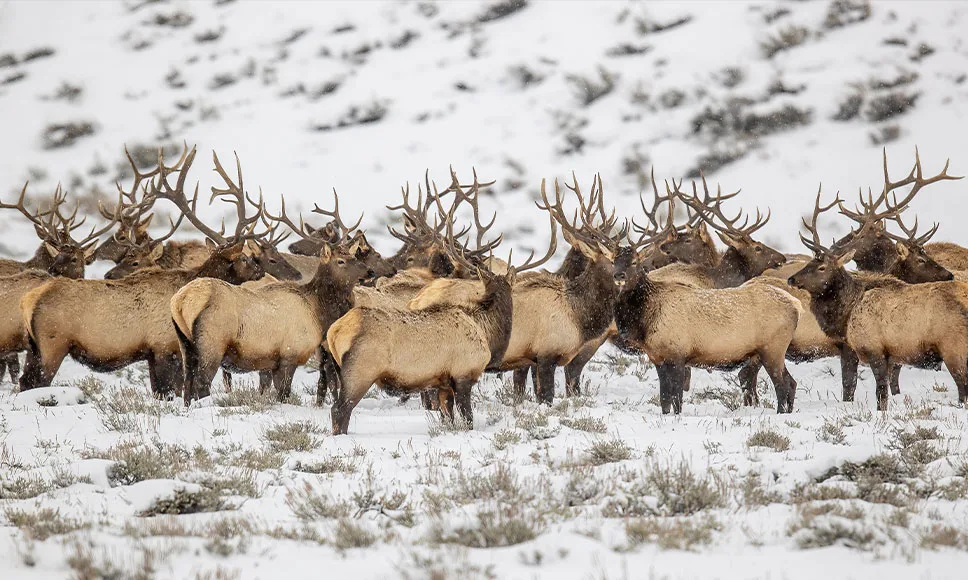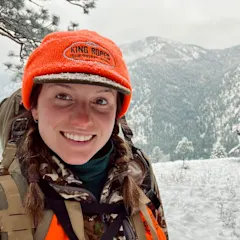A bill introduced in the Wyoming state legislature last month that sought to enable the sale of landowner tags to third parties has been tabled following a collaborative lobbying effort involving several hunting and conservation groups. If passed, Senate File 118 would have turned hunting licenses into free-market commodities by allowing landowners to profit from their sale, driving up the price of highly coveted big-game tags, representatives from the groups say.
Wyoming State Senator Laura Pearson (R-Kemmerer) introduced Senate File 118 on behalf of her family and other landowning members of her community, according to WyoFile. A series of legislators and state senators jumped on board with the idea, which could have potentially helped ranching communities that continue to struggle in the Cowboy State. The livestock industry has been hard-hit by high costs of living and inclement weather events, from the harsh winter of 2022-2023 to a series of fires that ripped across the state earlier in 2024.
But many in the the hunting and wildlife management community opposed the bill from the start. They cited concerns that ranged from violations of the North American Model of Wildlife Conservation to a complete drain of available licenses in limited-draw areas.
What are Landowner Tags?
Wyoming’s landowner tag structure awards two elk, deer, antelope, and/or wild turkey tags to qualifying landowners with at least 160 acres of land in draw-only hunt areas. That acreage must provide food, water, and cover for the species of interest—whether that’s year-round habitat for a flock of turkeys or a migratory herd of mule deer hanging out for a month. Landowner tags are intended to acknowledge the critical wildlife habitat that Wyoming’s private landowners steward, often at the cost of feed, fence, and other resources. In Wyoming, the tags are valid for the entire unit where the landowner is located, not just within their private land boundary, although they aren’t applicable in general hunt units.
Currently, those tags are only transferrable to landowners’ immediate family members. Conservation groups fear that if transferable tags become sources of profit, more landowners would be incentivized to apply for them—a scenario they say could result in a near-absence of general hunting opportunity in some limited-draw areas.
That’s exactly what happened in New Mexico, according to a report from the New Mexico Wildlife Federation and the New Mexico Chapter of Backcountry Hunters and Anglers. State law mandates that 84 percent of New Mexico’s elk tags be distributed through a resident draw system. Another 10 percent should go to outfitters, and the remaining 6 percent to a nonresident draw.
But data from the 2022-2023 elk hunting season showed that, with transferrable landowner tags on the table, the number of tags in the resident draw was closer to 55 percent, while over 28 percent of tags went to nonresidents through the Elk Private Lands Use System (EPLUS) program, and another 9.4 percent went to resident buyers. Outfitters only received 4.4 percent of their set-aside tags, leaving nonresident draw entrants with 2.6 percent of all tags. In high-demand units, New Mexico’s EPLUS tags regularly sell for over $10,000, the report says.
Finding Common Ground
Early last week, representatives from Wyoming's hunting community met with the sponsor and co-sponsors of the bill to express their concerns and seek common ground with the ranching community. According to a joint letter released by 11 hunting groups, hunters and ranchers stuck a deal and the bill was tabled. "The dialogue was productive, and emblematic of how we can come together in Wyoming to resolve differences and seek outcomes that benefit as many people as possible," the letter states. "We thank Senator Pearson and the co-sponsors for agreeing to lay SF 118 aside in order to foster stronger collaboration between landowners and the hunting community ... We are committed to supporting an interim study in the Joint Agricultural Committee to find collaborative solutions to make sure ranchers stay on the land and landscapes stay intact."
While Senate File 118 isn’t technically dead, it won’t be brought up in committee, which means it will die for lack of a hearing, Wyoming Wildlife Federation government relations director Jess Johnson tells Field & Stream. “There was an incredible meeting between sportsmen, Game & Fish, and the sponsors of this bill, to talk about next steps and figure out how to work together,” Johnson says. “Sporting groups value large working landscapes, and so do landowners. So how do we make sure we keep folks on the ground who foster that land, and how do we keep those landscapes in-tact in perpetuity to keep Wyoming what it is? We were very, very happy to make this deal.”


